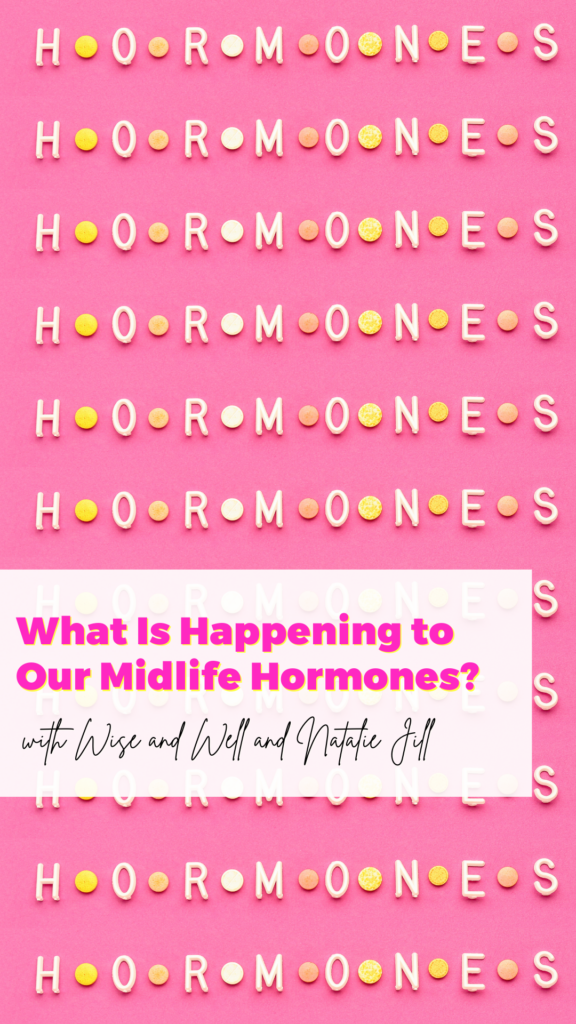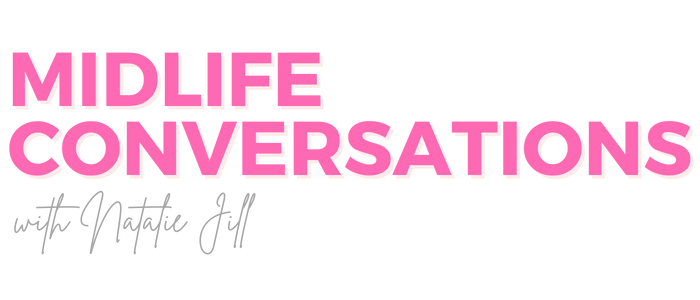What is Happening to Our Midlife Hormones? with Wise and Well
My go to hormone girls are Kristin and Maria at Wise and Well are one of my most downloaded podcasts, my most popular summit interview, AND my go to girls for all of my hormone questions – from my labs to the news to you name it. I was excited to have them back on the podcast to dive even deeper on what the heck is happening to our hormones in midlife and to shine light onto some of the misinformation we have alllllll heard about HRT.
Suzanne Somers Hormone Hype
We cannot believe how many people (including medical professionals) who took the sad passing of Suzanne Somers as an opportunity to shoot down hormones in the media and/or use it for their own gain. The truth of the matter is that Suzanne Somers was a HUGE hormone advocate. She is the one who brought compounded hormones to the forefront AND pushed to make it accessible to us all who can benefit from it. Her breast cancer was not her first incident of cancer – she faced a whole host of other cancers in as early as her 20s – most of which predated her use of hormones. In that case, it doesn’t seem fair to be blaming her cancer or passing from, on hormone use. Suzanne also had high distrust in conventional medicine, so she personally chose to take some non-conventional and non-vetted methodologies to address her cancer diagnosis.

The Breast Cancer and Hormone Connection
Yes, women who use hormones can get breast cancer. So can women who do not use hormones – and maybe even more often those who do use hormones. The biggest risk for breast cancer is being a woman and growing older.
There is a lot of confusion around this topic and in addition to doctors being trained on bad science, often the confusion is because the nuances are overlooked. Until recently, the only study being taught in medical school (and thus, what all doctors we had been seeing were taught) was that HRT causes breast cancer. But what caused the breast cancer was the application of endocrine disruptors during the study from the synthetic hormones on women who were not prescreened for cancer and had other metabolic issues which we know drive cancer – like type II diabetes, obesity, smoking history, drinking, etc.
One of the biggest problems of the study is that they used synthetic pharmacology hormones (not bioidenticals) that were actually at odds with women’s physiology just for being what they are, and the study was being altered to spread the message that ALL hormones were bad. If that were TRUE, then how do you escape extremely elevated levels of estrogen while pregnant without cancer? It’s not the hormones.
Progesterone is what our body naturally makes and it can be synthesized in a lab from natural materials and be molecularly identical to that which we make naturally. Then we have progestogen which is an umbrella term that gets used to denote full progesterone natural AND synthetic progestins (things that molecularly do NOT resemble what we make). So when you hear these studies you have to ask: was it progesterone or was it progestin?!
The Benefits of Taking Hormones in Perimenopause and Menopause
An important piece to this conversation is the fact that hormones don’t work without receptors. There are receptors all over your body for hormones and they ALL benefit from having estrogen. Estrogen is great for vaginal health, skin health, sleep, emotional regulation, stress tolerance, strength and muscle, brain health, you name it. There have even been a high number of incidents in Wise + Well patients where osteoporosis is quite literally being reversed.
Is It Too Late For Me to Start Taking Hormones?
No. If you’re healthy, have a smart provider who is trained in hormones and understands pre-screening to ensure nothing will get triggered, you can start HRT. These changes start in perimenopause before you even know things are changing inside of us. It’s BETTER to start earlier because you want to capture your body when it still has the integrity of the healthiest systems it can BUT late doesn’t automatically mean it’s a no go.
Is Estrogen Dominance Common?
“Estrogen dominance” was originally intended to mean an overproduction of estrogen in the body which could come from anywhere (fat cells, ovaries, adrenals, etc.). But once you hit 40, you’re lucky if you’re producing robust amounts of estradiol on a daily basis. When the word “dominance” is used, they are referencing a relationship between estrogen and progesterone.
The problem is that if you were to map out a woman’s 28 day cycle and compare the production of estrogen and production of progesterone, you’re always estrogen dominant by the theory that estrogen is higher than progesterone. Relatively speaking, that is always the case in the 28 day cycle. What the ACTUAL problem is in midlife, is that we have declining progesterone but our estrogen is ALSO declining. So we have low hormones ALL together! Estrogen creates receptors for progesterone, so as estrogen decreases, so do the receptors for the progesterone, and we won’t feel the progesterone effects like we used to.
This and SO much more on the episode!
About Kristin Johnson
Kristin is a functional nutritionist with advanced training in holistic nutrition as well as a specialty in peri-menopause and menopause health. She is Board Certified in Holistic Nutrition through the National Association of Nutrition Professionals, a certified DUTCH hormone test practitioner, and a graduate of the Nutritional Therapy Association’s Functional Nutritional Therapy Practitioner program. In addition, she has special training in amino acid therapy for anxiety and mood disorders as well as mindset coaching to facilitate change. Kristin completed a professional mentorship with naturopathic endocrinologist Dr. Rebecca Provorse in 2020 and am also a “recovering” corporate attorney. She will perform a comprehensive functional analysis of your health history, nutrition status and lab tests to create an individualized protocol aimed at rebalancing your body’s systems and solving for any deficiencies. She then guides you through shifts in diet, lifestyle and mindset while educating you on options to restore or support your hormones and optimize your health!
About Maria Claps
Maria is a functional health coach with a specialty in peri-menopause and menopause. She graduated from The Institute for Integrative Nutrition in 2013 and then went on to study in a hormone program for practitioners with Dr Sara Gottfried in 2014. She spent the first 8 months of 2015 completing the Functional Diagnostic Nutrition Certification Program and, in 2017, completed the Menopause Method Program for Physicians with Dr David Rosensweet. Maria has been personally mentored by hormone scholar Dr Lindsey Berkson and naturopathic endocrinologist Dr Rebecca Provorse. She now mentors other health coaches and nutritionists to help them understand the unique and profound hormone changes of midlife. She combines holistic health coaching with functional lab tests to help you identify and assess your hormonal deficiencies, gut health and metabolic status. She then educates you on your options for hormone therapy so that you can work with a hormone provider (either your own or one of ours) from a position of knowledge and clarity instead of fear and confusion.
In this episode, you will learn:
- Why taking hormones is a must for midlife women
- How estrogen interacts with your body to keep you healthy
- The effects of estrogen on your muscles
- Skin & Vaginal Health
